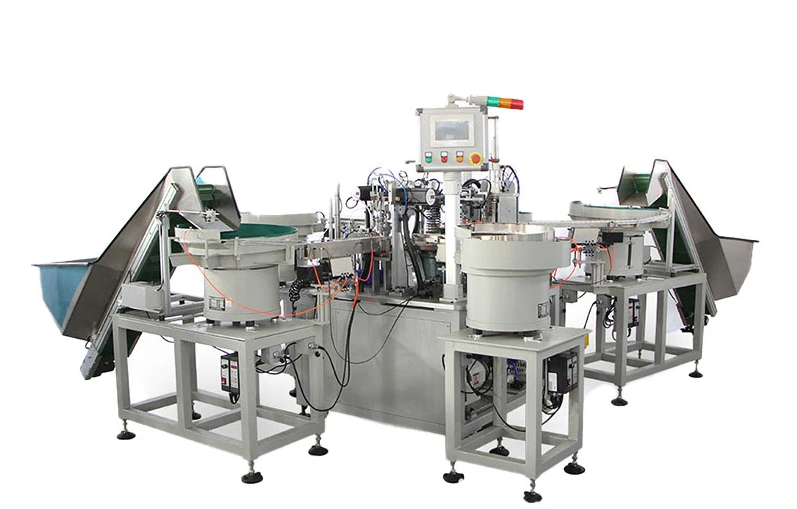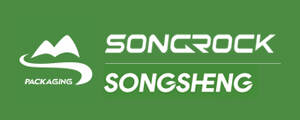Email format error
Email cannot be empty
Email already exists
6-20 characters(letters plus numbers only)
The password is inconsistent
Email format error
Email cannot be empty
Email does not exist
6-20 characters(letters plus numbers only)
The password is inconsistent


The Power of Precision: How the Assembly Machine Sprayer Transforms Modern Manufacturing
In today’s world, manufacturing is a highly sophisticated process that relies on precision, efficiency, and innovation. One of the key innovations driving these factors is the assembly machine sprayer. You might have encountered this technology in various industries, perhaps without even realizing it. Whether you're purchasing a new car, a smartphone, or a piece of furniture, the chances are that the products you’re using have benefited from the capabilities of an assembly machine sprayer.
But what exactly is an assembly machine sprayer, and how has it revolutionized manufacturing processes across the globe? Let’s dive into the fascinating world of automated spraying systems and explore their roles in transforming industries, improving product quality, and driving sustainable practices.
What Is an Assembly Machine Sprayer?
At its core, an assembly machine sprayer is a specialized robotic system designed to apply coatings, paints, or other liquids onto surfaces during the assembly process. Unlike manual spraying, which requires skilled workers to apply the coating by hand, assembly machine sprayers use precision tools to spray an even layer of material in a controlled, efficient manner. These machines are often integrated into automated assembly lines and can handle a variety of materials, including paints, varnishes, adhesives, lubricants, and even coatings for electronics.
The sprayer can be designed to work with a range of spray methods, such as air spray, airless spray, electrostatic spray, or even high-volume low-pressure (HVLP) spraying, depending on the material and the surface being coated. Automated spraying machines are also programmed to adjust the spray pattern, pressure, and speed to ensure uniform coverage, minimal waste, and optimal application quality.
The Role of the Assembly Machine Sprayer in Modern Manufacturing
Increased Efficiency and Speed
One of the major advantages of incorporating assembly machine sprayers into manufacturing lines is the significant boost in efficiency and speed. Traditional manual spraying can be slow and prone to inconsistencies, leading to production delays. In contrast, an assembly machine sprayer can apply coatings at a faster rate, while maintaining high precision.
Automation allows for continuous spraying without the need for breaks, ensuring that production lines stay running smoothly. This speed not only shortens the manufacturing cycle but also reduces labor costs, allowing manufacturers to allocate resources to other critical areas of production.
Consistency and Precision
Consistency is critical in any manufacturing process, especially when it comes to surface treatments like painting, coating, or spraying. An assembly machine sprayer excels in this area because it delivers a uniform coating with minimal variation. Unlike manual spraying, where the quality of the application can vary depending on the skill and experience of the operator, an assembly machine sprayer uses technology to ensure that every item in the production line gets the same treatment.
This consistency is crucial, especially in industries where the quality of the surface finish plays a significant role in the product’s overall quality, durability, and aesthetics. Whether it’s ensuring a flawless paint job on a car or ensuring a protective coating is applied uniformly on electronic devices, the assembly machine sprayer ensures that the final product meets high standards every time.
Reduced Waste and Material Savings
Another major advantage of automated sprayers is their ability to reduce waste and save materials. Manual spraying can often result in over-spraying, drips, and inconsistent application, leading to a lot of wasted paint or coating material. In contrast, assembly machine sprayers are programmed to optimize the amount of material used, ensuring that only the necessary amount is applied to each surface.
Some advanced sprayers are even equipped with sensors to detect the size and shape of the item being sprayed, adjusting the spray pattern to minimize overspray and ensure efficient use of materials. This not only reduces costs but also contributes to more sustainable manufacturing practices by minimizing waste and lowering the environmental impact of the production process.
Improved Safety and Reduced Worker Exposure
Spraying can be a hazardous task when done manually, especially when dealing with volatile chemicals, paints, or coatings that contain harmful solvents. Exposure to fumes and particulate matter can pose serious health risks to workers, leading to the need for expensive safety equipment and ventilation systems.
By automating the spraying process with an assembly machine sprayer, manufacturers can reduce worker exposure to these hazards. Robotic sprayers operate in a controlled environment, often within enclosed booths or chambers that prevent the spread of fumes and particles into the workspace. As a result, workers are less likely to be exposed to harmful substances, leading to a safer working environment and fewer health-related issues.
Customization and Flexibility
While assembly machine sprayers are often associated with high-volume production lines, they can also be highly flexible. Many modern sprayers come with adjustable settings, allowing manufacturers to customize the spraying process based on the specific needs of each product. For instance, a manufacturer might need to apply a different coating to a particular component, and the sprayer can easily adjust to accommodate this change without significant downtime.
Furthermore, automated sprayers can be programmed to work with different materials, ensuring that the right type of coating is applied to each surface, whether it’s a delicate plastic or a rugged metal part. This adaptability makes assembly machine sprayers an invaluable tool in industries with diverse product lines or rapidly changing product requirements.

The Benefits for Specific Industries
The benefits of using assembly machine sprayers are clear, but let’s take a closer look at how this technology impacts some of the most prominent industries.
Automotive Industry
The automotive industry has long been a leader in automation, and the use of assembly machine sprayers is no exception. Spraying a uniform layer of paint or protective coating on vehicle parts is a crucial step in automotive manufacturing. In the past, manual labor was required to achieve the precision and coverage needed, but today’s automated sprayers have completely transformed this process.
From applying the base coat to adding a clear finish, assembly machine sprayers in automotive plants ensure that vehicles have a smooth, even, and durable finish. Moreover, these machines are designed to work quickly, enabling manufacturers to produce high-quality vehicles in high volumes. This efficiency is key to meeting the demands of the competitive automotive market.
Electronics Manufacturing
The electronics industry also benefits greatly from assembly machine sprayers. Many electronic devices, such as smartphones, tablets, and computers, require specialized coatings to protect sensitive components from dust, moisture, and other environmental factors. These coatings must be applied precisely and evenly to ensure the product’s longevity and performance.
Assembly machine sprayers are ideal for this task because they can apply thin, uniform layers of protective coatings, such as conformal coatings, to intricate components. These machines ensure that no area is left uncoated, reducing the risk of malfunctions or damage to internal parts.
Furniture and Home Appliances
The furniture and home appliance industries also make extensive use of automated sprayers for finishing products. Whether it’s applying a lacquer finish to a wooden chair or coating a refrigerator door, assembly machine sprayers ensure that each product receives the same high-quality treatment. This is especially important in industries where aesthetics and durability are key factors in product appeal.
By automating the spraying process, manufacturers can also reduce turnaround times and improve their overall production capacity, ensuring that products reach the market faster.
The Future of Assembly Machine Sprayers
As technology continues to evolve, so too does the assembly machine sprayer. The future of these machines is bright, with advancements in artificial intelligence, robotics, and materials science driving new capabilities and improvements. For instance, the integration of machine learning algorithms could allow sprayers to become even more adaptive and responsive to different surfaces, materials, and production requirements.
Furthermore, as sustainability becomes an increasingly important priority in manufacturing, future assembly machine sprayers may incorporate more eco-friendly technologies, such as water-based coatings and low-energy consumption systems, to further reduce environmental impact.
Conclusion
The assembly machine sprayer is a powerful tool that has transformed modern manufacturing, making it faster, more efficient, and more precise. From automotive factories to electronics production lines, this technology has become an essential part of the manufacturing landscape. With its ability to reduce waste, improve safety, and deliver high-quality finishes, it’s clear that the assembly machine sprayer is not just a passing trend, but a cornerstone of the future of manufacturing. Whether you’re aware of it or not, the sprayer’s influence is all around us, shaping the products we use every day.
As industries continue to innovate and automate, we can expect even greater advancements in spraying technology, which will lead to smarter, more sustainable, and even more efficient manufacturing processes.

